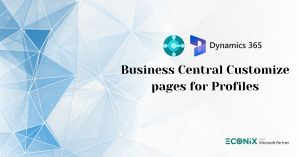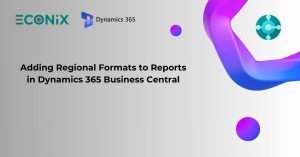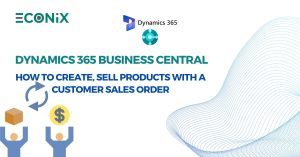Microsoft Dynamics 365 Finance and Operation Modules
Overview and It’s Functionality

Introduction
Microsoft Dynamics 365 Finance and Operations or Dynamics AX as it was earlier called is an full Enterprise Resource Planning (ERP) software that is utilized by a variety of organizations to manage its business procedures. In this blog post, we will provide an overview of the key features and functionalities of Dynamics 365 finance and accounting modules, highlighting their benefits and how they can streamline financial processes. From general ledger management to accounts payable and receivable, budgeting, and financial reporting, these modules offer comprehensive solutions for organizations seeking to optimize their financial management capabilities.
Microsoft Dynamics 365 F & O modules can be divided into four categories that include three: commerce, finance supply chain management, finance and human resources.
Finance
Financial module is used to execute a range of financial business procedures. The sub-modules within the Finance module comprised of Accounts payable, accounts receivable, Budgeting and Bank Management, compliance cost accounting, fixed assets General ledger and Project Management Regional and Public sector regulatory functions.
Commerce
The Commerce module includes functions for managing retail that can be used to control the commercial business processes within the company. A few of the sub-modules included in the Commerce module include: Call center, channel setting and Management, MPOS as well as Cloud Point of Sale, Commerce developer and administration.
Supply Chain Management
The Supply Chain Management module has an entire view of warehouses, inventory manufacturing, service and logistics. It also provides data insight that helps the business to make better strategic choices. Some of the sub-modules of the Supply Chain Management module include cost management, inventory management master planning, procurement and procurement, product information management Control of production, Sales and marketing, transportation management and Warehouse management.
Human Resources
The Human Resources module is able to streamline and enhance some of your human resources processes. The sub-modules of Human Resources include: benefits, employee development and training questionnaires. Human Resources module are : benefits, employee development, training, questionnaires, and payroll.
Microsoft Dynamics 365 Finance Functionality
General Ledger Management
The General Ledger module in Dynamics 365 provides a centralized and accurate view of an organization’s financial transactions. It enables users to define and manage chart of accounts, track and record journal entries, and perform financial analysis. With real-time visibility into financial data, businesses can monitor their financial health, reconcile accounts, and generate financial statements effortlessly.
Accounts Payable
The Accounts Payable module simplifies and automates the process of managing vendor invoices and payments. It allows organizations to create and track vendor records, manage purchase orders, and process invoices efficiently. With features like automated payment reminders and intelligent matching capabilities, businesses can streamline their payables process, improve accuracy, and ensure timely payments.
Accounts Receivable
The Accounts Receivable module enables organizations to efficiently manage customer invoices, credit limits, and collections. It facilitates the creation and tracking of customer records, automates invoice generation, and provides tools for managing customer payments and collections. By streamlining accounts receivable processes, businesses can enhance cash flow, reduce outstanding receivables, and improve customer relationships.
Budgeting and Forecasting
Dynamics 365’s Budgeting and Forecasting module empowers organizations to create, manage, and monitor budgets with ease. It enables users to define budget models, allocate funds, and track actual versus planned expenses. With robust forecasting capabilities, businesses can make informed financial decisions, analyze budget variances, and adjust their financial plans as needed.
Financial Reporting and Analytics
The Financial Reporting and Analytics module offers powerful reporting tools to generate accurate financial statements, balance sheets, income statements, and cash flow statements. Users can create custom reports and dashboards, perform ad-hoc analysis, and gain insights into key financial metrics. With real-time data and interactive visualizations, decision-makers can make informed strategic decisions, identify trends, and monitor financial performance.
Fixed Assets Management
The Fixed Assets module helps organizations efficiently manage their fixed assets throughout their lifecycle. It enables users to track and depreciate assets, manage maintenance schedules, and handle asset disposals. With automated depreciation calculations and comprehensive reporting, businesses can ensure compliance, accurately value their assets, and optimize asset utilization.
Cash and Bank Management
The Cash and Bank Management module allows businesses to manage their cash flow, bank accounts, and banking transactions. It enables bank statement reconciliations, cash forecasting, and bank transaction processing. This module provides insights into cash positions, facilitates efficient cash management, and ensures accurate bank reconciliations.
Project Management and Accounting
The Project Management and Accounting module is designed for businesses that undertake projects and need to track project costs, budgets, and revenues. It supports project planning, resource management, project budgeting, time and expense tracking, and project accounting. This module helps organizations manage projects effectively, track project profitability, and optimize resource allocation.
Procurement and Sourcing
The Procurement and Sourcing module streamlines the purchasing process and helps organizations manage their suppliers and procurement activities. It supports vendor management, purchase requisitions, purchase orders, and request for quotations. This module improves procurement efficiency, ensures compliance, and helps optimize supplier relationships.
Inventory Management
The Inventory Management module provides comprehensive tools for managing inventory levels, tracking stock movements, and optimizing inventory across multiple locations. It supports inventory control, replenishment, warehouse management, and demand forecasting. Inventory Management helps minimize stockouts, reduce carrying costs, and ensure timely order fulfillment.
Sales and Marketing
The Sales and Marketing module enables organizations to manage their sales processes, customer relationships, and marketing campaigns within the ERP system. It supports lead management, opportunity tracking, sales order processing, and customer communication. This module facilitates sales forecasting, enhances customer engagement, and integrates sales and marketing activities with financial operations.
Conclusion
Microsoft Dynamics 365 finance and accounting modules provide comprehensive solutions for organizations to streamline their financial operations. From general ledger management to accounts payable and receivable, budgeting, and financial reporting, these modules offer powerful tools to enhance financial visibility, improve process efficiency, and make informed decisions. By leveraging the capabilities of Dynamics 365 finance and accounting modules, businesses can optimize their financial management, reduce manual efforts, and drive overall business growth.
LATEST INSIGHTS
-
Business Central customize pages for profiles
-
Adding Regional Formats to Reports in Dynamics 365 Business Central
-
Dynamics 365 Business Central – How to create Sell Products with a Customer Sales Order
-
Cash Flow in Dynamics Business Central Overview
-
Understand Location cards in D365 Business Central
REQUEST
FOR A CALL BACK
Provide discussion information and we’ll get back to you as soon as possible
Customer Satisfaction
Address
Corporate Office
Econix InfoTech Ltd.
10B-111 REGINA RD, WOODBRIDGE, ON L4L 8N5, Canada
Request a Business Consultation
Subscribe Newsletter
Copyright© 2018-2024 ECONIX InfoTech & Group Companies. All Rights Reserved



